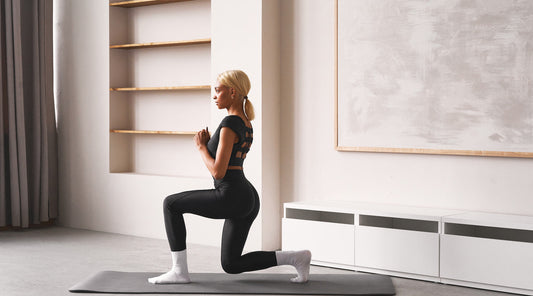Sleep quality is determined by how long you sleep, how long it takes you to fall asleep, and how frequently you wake up during the night. Numerous factors, such as health problems, lifestyle decisions involving caffeine and blue light exposure, and sleep disorders, can contribute to poor quality sleep.
Your preferences and health state will determine the best sleeping posture for you. Experts, however, generally concur that sleeping on one's side or back is preferable to sleeping on one's stomach.
Sleeping positions are generally classified as stomach side or back. Many people switch their sleeping positions during the night, a phenomenon known as combination sleepers. But when you sleep, you probably have a favorite position.
Your preferences and health will determine the best posture to sleep at night. Ultimately, the ideal sleeping position helps achieve pain-free, peaceful, and uninterrupted sleep.
How Posture Affects Sleep Quality
The way a person sleeps directly affects how well they sleep. Lower sleep quality is linked to poor posture, whereas a higher-quality, proper sleeping position is associated with good posture. The Etalon Posture Correcting Bra is an optimal modern posture correction and maintenance solution.
An individual's ability to achieve a comfortable sleeping position can be influenced by their mattress and bedding. Studies reveal that those who sleep on bedding that keeps the head and neck in line with the spine and on moderately firm mattresses experience reduced stress, better sleep, and less pain.
The Benefits Of Good Sleep Posture
Reduced Back Pain
Back pain can result from a bad sleeping position. Waking up with neck pain is linked to sleeping on your stomach or in a prone position. Certain sleeping positions can lessen the chance of neck or back pain.
The fetal position, which involves sleeping on one side with one leg propped up on the bedding, can help prevent or treat neck and back pain.
Better Breathing
The muscles surrounding the airway naturally relax when you sleep. These relaxed tissues may occasionally flutter and vibrate as air passes through the upper airway, resulting in snoring. The possibility of snoring increases when you lie flat on your back, maybe because of gravity.
Adults who want to sleep on their backs but snore should raise their heads and backs with an adjustable mattress or wedge pillow. Shifting to a side, the optimal sleeping position, can occasionally lessen the frequency of breathing disruptions for those with OSA who experience worsening when they are supine.
Improved Sleep Quality
The degree of well-being an individual reports the following day can be used to assess the subjective quality of their sleep. At the same time, objective measures include the duration of each sleep stage and the frequency of nighttime awakenings.
The mattress and bedding that people use can significantly impact their ability to maintain proper sleeping posture.
An excessively firm mattress can strain joints. To address this problem, most sleep specialists advise choosing a medium-firm orthopedic mattress. It should be changed every seven to eight years.
The mattress will eventually wear out, which is why. To achieve the ideal firmness and support, a new mattress is necessitated. Many sleep specialists believe that sleeping on an old, lumpy mattress increases the risk of developing chronic back pain.
Best Position to Sleep in For Posture
Whatever position feels most comfortable and helps you maintain spinal alignment is the best one for your spine.
Back Sleeping & Spinal Alignment
The following are the good sleeping positions for your back and neck:
Lying flat on your back. Lie flat is the closest thing to standing with your head, neck, and spine in a relaxed alignment. Additionally, lying flat helps your body to distribute weight evenly. Make sure to use a quality pillow to support your head.
Fetal position. This is by far the most popular sleep position because it feels natural and was the first sleep position anyone ever experienced.
Lying on your side. If you can't get used to sleeping on your back, the next best posture while sleeping is on your side. Just make sure to extend your legs to keep your spine neutral. Be aware that a sore neck is one of the possible side effects of this position.
Side Sleeping & Its Benefits
Back Pain Relief
Many people experience chronic pain, particularly in the lower back. Incorrect sleeping positions, like sleeping on your stomach, can put more strain on your spine and cause pain when you wake up. People report feeling less pain when they sleep on their sides.
Decreased Risk Of Sleep Apnea & Snoring
People typically snore more loudly when sleeping on their backs as opposed to their sides. When sleeping on your back, your tongue is more likely to slide back down your throat, which can cause an obstruction and snoring. Your airway may remain more open when you sleep on your side, making breathing easier.
Improved Mental Well-Being
While you sleep at night, your brain completes the majority of this crucial work during the day. According to research on the effect of sleeping position on waste removal, the brain can eliminate waste more quickly in the side sleeping position than in the stomach or back positions.
The Downsides Of Stomach Sleeping
Should you prefer sleeping on your stomach, knowing how this position can exacerbate pain and what you can do to mitigate those adverse effects could be useful.
Your Spine May Not Be Aligned Correctly
A sleeping position that promotes good spinal alignment is ideal. Because of your weight, your torso naturally sinks deeper into the mattress when you sleep on your stomach. Your vertebrae may extend out of their neutral alignment due to an arched back. A misaligned spine can put stress and strain on the spine, leading to morning aches and pains.
You Might Experience Back, Neck, Or Shoulder Pain
Neck pain may become more likely if you sleep on your stomach. When you sleep on your stomach, your head must turn to one side to breathe. When you turn your head, your neck must also twist, which causes your head to become misaligned with your spine. Bad sleeping posture can cause headaches and arm or shoulder pain.
Correcting Sleep Posture for Better Sleep
Finding out if your existing sleeping position is problematic or disrupting your sleep is the first step towards achieving a better sleep position. Several techniques can help correct sleep posture.
- Firmness of the pillow: Because pillows primarily support the head and neck, they are crucial for proper spinal alignment. Experts often advise pairing a softer mattress with a softer pillow, so a person's pillow choice may depend on their mattress.
- Positional therapy: You can correct back sleeping positions by finding specific sleep positions encouraged by bedding or other devices.
- Pillow placement: in addition to supporting the head, pillows can also be used to support the knees and hips and bolster the back. If you sleep on your side, you might consider putting a pillow behind your back or between your legs to help you stay in this position.
Consider a Posture Correcting Bra for good posture, which also helps fix posture while sleeping and provides your body with extra support for better posture.
Chronic Issues Arising from Poor Sleep and Bad Posture
Poor-quality posture has a negative impact on health. Regular neck or back pain may cause insomnia or poor-quality sleep. If you don't get the recommended amount of sleep for your body, you could develop sleep deprivation.
The most obvious sign of sleep deprivation is daytime fatigue. This weariness may have a hazardous effect on your daytime functioning and alertness.
Some of the short-term consequences of sleep deprivation include:
- Impaired decision-making
- Higher risk of being in or causing a car accident
- Risk of being involved in a work accident or sustaining an injury, particularly for shift workers
- Issues with memory function
- Hunger and weight gain
- Vision issues
- Emotional outbursts
- Impulsivity
The Benefits Of Maintaining Good Posture & Sleep Quality
Good posture can enhance sleep quality through pain relief, increased oxygen intake, improved respiratory function, muscle strengthening, and decreased musculoskeletal injuries.
Furthermore, proper posture can boost confidence and improve general health. Good posture is an easy yet powerful approach to enhancing general health and well-being because it provides several advantages.
Either getting a good night's sleep or not getting enough of it can affect the body physically and psychologically. Sleep rejuvenates the body and boosts vitality, so getting enough sleep can improve one's mood when they wake up.
Conclusion
Many conditions can be prevented by simply adjusting our sleeping position, which is a risk factor in many cases. Certain people are better suited for specific sleeping positions based on their history of spinal disorders or injuries. Sleep positions can be changed to accommodate each person's unique needs.
FAQs
Can the way you sleep affect your posture?
What are the best sleeping positions for good posture and sleep quality?
What is the healthiest sleeping position for the spine?
How can I fix my posture while sleeping?
What are the proper sleeping positions to enhance overall health?
Are there specific sleep positions that are bad for your back?
How can I improve sleep efficiency through better posture?
Trending
Try Etalon posture improvement products








